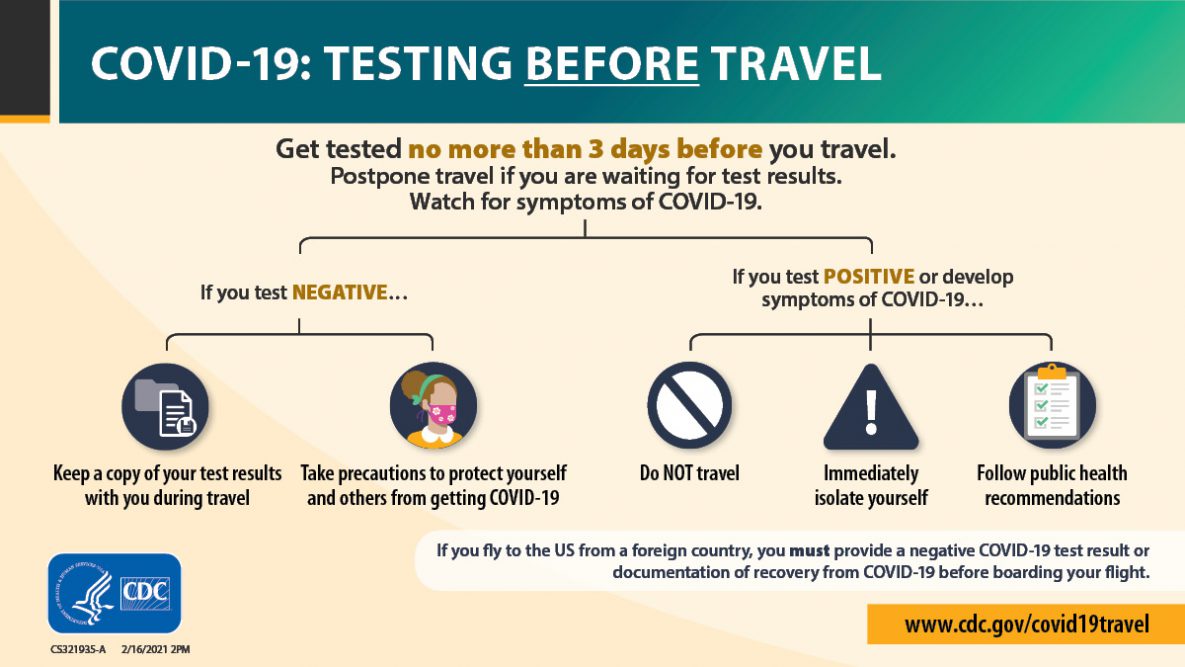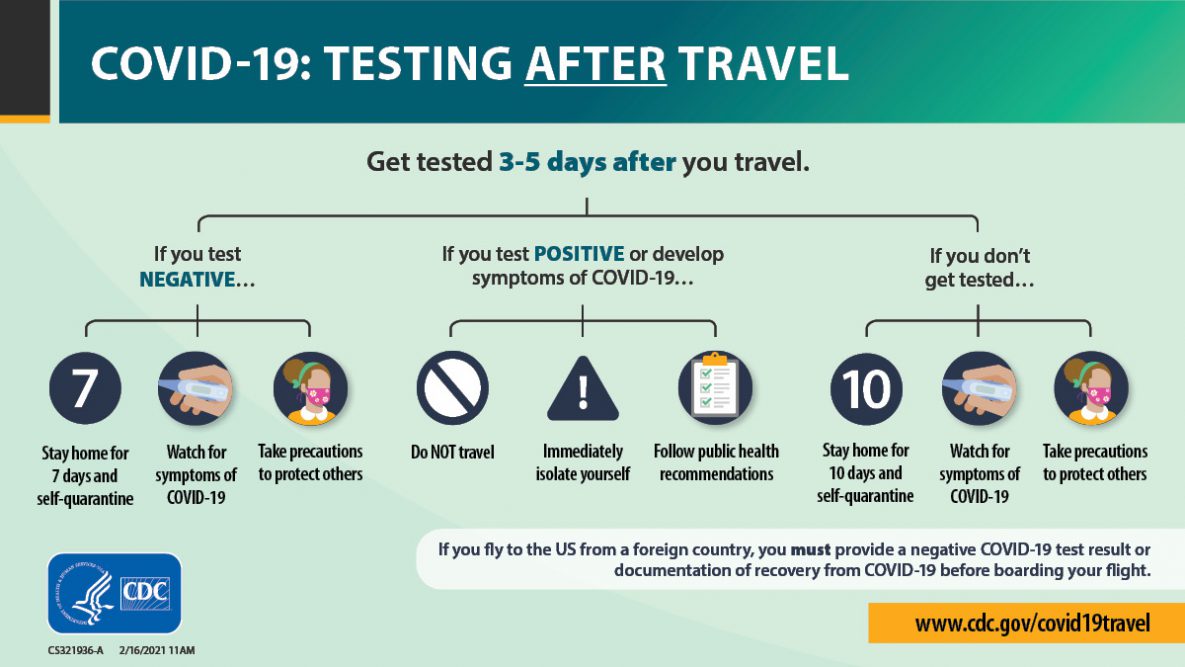We continue to learn more and more about COVID-19 through an abundance of research and analysis. As we know more, protocols will evolve and recommendations will shift. We wanted to share new guidance from the Centers for Disease Control (CDC), the Minnesota Department of Health (MDH), and our local Minnesota partners in your healthcare.
Travel in the time of COVID-19
This is the time of year that Minnesotans are itching to get away. After a year with very little (if any) travel for. many, and with COVID-19 trends moving in positive directions, it can be tempting to book a plane ticket to a warm and tropical destination. According to the CDC and the MDH, travel is still discouraged.
International Travel
According to CDC guidance, anyone who travels outside of the continental United States is advised to follow the guidelines noted below before returning to work:
Get Tested and Stay Home After Travel
- Get tested with a viral test 3–5 days after travel AND stay home to self-quarantine for a full 7 days after travel.
- Even if you test negative, stay home to self-quarantine for the full 7 days.
- If your test is positive, isolate yourself to protect others from getting infected.
- If you don’t get tested, it’s safest to stay home for 10 days after travel.
- Avoid being around people who are at increased risk for severe illness for 14 days, whether you get tested or not.
In addition, all air passengers coming to the United States, including U.S. citizens, are required to have a negative COVID-19 test result or documentation of recovery from COVID-19 before they board a flight to the United States.
Masks are required on planes, buses, trains, and other forms of public transportation traveling into, within, or out of the United States and in U.S. transportation hubs such as airports and stations.
Out of State Travel
The Minnesota Department of Health and the CDC are highly discouraging domestic travel. If you are considering travel, you should ask yourself these questions:
- Are you, someone in your household, or someone you will be visiting at increased risk for getting very sick from COVID-19?
- During the 14 days before your travel, have you or those you are visiting had close contact with people they don’t live with? The following activities can put you at higher risk for COVID-19:
- Going to a large social gathering like a wedding, funeral, or party.
- Attending a mass gathering like a sporting event, concert, or parade.
- Being in crowds, such as in restaurants, bars, fitness centers, or movie theaters.
- Taking public transportation, such as planes, trains, or buses, or being in transportation hubs like airports.
- Traveling on a cruise ship or riverboat.
If you answer “yes” to any of these questions, you should delay your travel. Just like international travel, it is recommended you follow the same pre and post travel testing recommendations (as provided by the CDC).


Can I Schedule My Elective Surgery?
In addition to delaying travel, many have also put elective surgeries on hold. It is always recommended that you consult with your medical team regarding the best timing for your procedure; however, there are recommendations in place that may aid in your planning.
Guidelines:
- It is likely that you will be required to undergo a COVID-19 test prior to any elective surgeries, even if you have already been vaccinated or have previously been infected with COVID-19.
- If you have recently tested positive for COVID-19, an elective surgery may still be possible after a recommended waiting period of 4-12 weeks, depending on the severity of your symptoms.
I’ve Been Vaccinated, What Precautions Should I Take?
If you’ve been vaccinated but have been exposed to someone with suspected or confirmed COVID-19, you are no longer required to quarantine if you meet all of the following criteria:
- You’ve been fully vaccinated, and it has been at least 2 weeks since you received the 2nd dose of the 2-dose series
- You are within 3 months of receiving the last dose in the series
- You have remained asymptomatic since exposure
If you do not meet all three of these criteria, it is still recommended that you quarantine.
Even those that are fully vaccinated should continue to wear a mask, practice social distancing, and wash hands often. Vaccines have demonstrated high efficacy at preventing severe symptoms of COVID-19, however there is limited data on how vaccines prevent transmission and how long protection lasts.
Questions?
If you have questions, we are happy to be a resource for you. We are available by phone at 763-587-7900.
The following websites can provide
the most up-to-date information and resources available related to COVID-19: